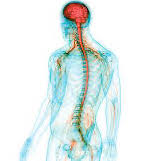
For those who have suffered an anxiety attack will know the experience as being very intense and scary.
I have had many clients tell me that after having one, they called the ambulance or thought they were going to die.
The intensity of this can be traumatic and set up a cycle of being anxious about being anxious.
The list of symptoms can vary a lot and because of this, two people may experience an anxiety attack in different ways.
Causes of Anxiety Attacks
We can look at causes in two ways:
- How they are characterised
- What is actually going on
Anxiety attacks are often characterised (being caused) by:
- Generalised Anxiety Disorder (GAD): People with GAD are more prone to experiencing anxiety attacks. GAD involves chronic and excessive worrying about various aspects of life, which can contribute to the development of panic attacks.
- Specific Phobias: Phobias, such as fear of flying, heights, or spiders, can trigger anxiety attacks when exposed to the feared object or situation.
- Post-Traumatic Stress Disorder (PTSD): Individuals with PTSD may experience anxiety attacks as a result of traumatic events or triggers associated with the trauma.
- Social Anxiety Disorder: Social situations that involve the fear of being judged or embarrassed can lead to anxiety attacks in individuals with social anxiety disorder.
- Panic Disorder: Panic disorder is characterised by recurring and unexpected panic attacks. These attacks can be triggered by specific situations, such as being in a crowded place or confined spaces.
- Stressful Life Events: Significant life changes, such as relationship issues, work-related stress, financial difficulties, or the loss of a loved one, can contribute to the development of anxiety attacks.
- Family History: There may be a family history of anxiety or panic disorders, often this creates an unconscious learnt behavioural pattern which will make someone more susceptible to experiencing anxiety attacks.
- Substance Abuse: Certain substances, including alcohol, caffeine, and stimulants, can trigger or worsen anxiety attacks, especially in individuals who are already prone to anxiety.
- Medical Conditions: Certain medical conditions, such as thyroid disorders, heart conditions, and respiratory disorders, can increase the risk of anxiety attacks.
What is actually going on in an anxiety attack:
It's important to understand what's actually going on which is causing anxiety attacks if you want to get the most effective treatment or STOP them from happening - because if you just categorise the type or label it, you will not actually make any progress.
Although there can be medical problems or mental illnesses associated with or causing the anxiety, in the LARGE majority of cases, anxiety attacks are simply TOO MUCH STRESS bound in the Nervous System. What is the Nervous System?
This binding of tension takes the body into a defensive physiology which causes our system to be more easily triggered into an inappropriate (or permanent state of) fight or flight response.
This fight or flight response is what anxiety is; The bodily or mental response to threat or danger, real or imagined.
Anxiety attacks occur when there is an overload of stress in the system - for some people it's a crowded place, or a boardroom meeting, driving on the motorway, etc..

Anxiety attacks manifest in different ways for different people, but generally they are due to the accumulation and overload of stress in the Nervous system.
When you understand that anxiety is like a switch that has been stuck on, which is actually too much stress bound in the Nervous System, when you work with this bound tension and free it, the switch will no longer be stuck in ON - and then it can fire ONLY when appropriate.
Symptoms of Anxiety Attacks:
Here is a list of common symptoms associated with anxiety.
- Intense feelings of fear, panic, or impending doom
- Rapid heartbeat or heart palpitations
- Shortness of breath or a sensation of being unable to breathe
- Chest pain or tightness
- Sweating or clammy hands
- Trembling or shaking
- Feeling lightheaded or dizzy
- Nausea or stomach discomfort
- Chills or hot flashes
- Numbness or tingling sensations
Below is also a list of symptoms that often come with Anxiety attacks, but not always.
- Feeling detached from reality or having a sense of unreality (derealisation)
- Feeling disconnected from oneself or having a sense of being detached from one's body (depersonalisation)
- Fear of losing control or going crazy
- Fear of dying
- Restlessness or inability to sit still
- Muscle tension or aches
- Difficulty concentrating or experiencing mental fog
- Excessive worry or preoccupation with future events
- Irritability or feeling on edge
- Sleep disturbances, such as trouble falling asleep, staying asleep, or having nightmares.
Treatments for Anxiety Attacks
This is an interesting topic - treating anxiety attacks
Because most of what you read online or what's suggested by Doctors is not actually that helpful at treating the anxiety, but more about managing and lessening the anxiety symptoms. Often this just causes it to persist.
But the common approaches are:
Relaxation techniques
Breathing Techniques
Stress Management
Support network
Self care
Cognitive-Behavioral Therapy
A slightly more effective approach is Cognitive-Behavioral Therapy (CBT): CBT is a widely recognized form of therapy for anxiety/anxiety attacks. It focuses on identifying and challenging negative thought patterns and beliefs that contribute to anxiety. CBT also includes techniques to modify anxious behaviours and develop healthier coping strategies.
The main challenge with CBT is that it is about lessening the anxiety and management - which means it keeps it still in your life, ideally just less intense. And the main drawback of this approach is that it does not address the Nervous System, it does not address the body side of anxiety. So, it is not as effective as resolving it as other approaches.
A Reorganisational Healing approach
The most effective approach I have come across is a combination of two things: Network Spinal Analysis with an associated Mindset re-programming course.
Network Spinal Analysis (NSA) is wonderful at addressing the Nervous System's built up and accumulated tension from life’s stresses and traumas.
If you remember, most anxiety and anxiety attacks are caused by too much stress in the body. NSA will reset the Nervous System so you can effectively deal with stress and not be so easily triggered by the fight or flight response.
If you don't address the Nervous System, you won't be able to resolve anxiety.
Essentially, anxiety is caused by too much stress.
Stress gets anchored into the body/Nervous System.
This stored tension causes a defensive physiology.
This defensive physiology causes the body to be in fight or flight mode.
This fight or flight response - often inappropriate - causes anxiety or an anxiety attack.
NSA takes the body out of defensive physiology, and into growth.

In growth, you can more easily respond to stressful situations in life without binding too much tension, and consequently you will become more resilient to life's stresses.
Clients tell me that after receiving regular NSA care, the things in life that used to stress them out, no longer seem to. They are less triggered into the fight or flight response and both anxiety and anxiety attacks seem to go. This shifts our body and our mind.
But I like to think of helping my clients in the best way possible as having an upgrade.
We need both a software and hardware upgrade. NSA will help you upgrade your body/Nervous System. But if you still try to run on old, negative thought programs, you will create stress once again.
An example could be if your habitual way of thinking is ‘what if’ thinking… if you think of worst case scenarios. Obviously, when your body is in growth, you will do this less often - but habits can be hard to break, especially if you are unaware of the negative impact they are having on you.
So, we also help our clients with a mindset retraining (software) upgrade too.
When both the body and mind have upgraded - both are in growth, and life is fantastic.
